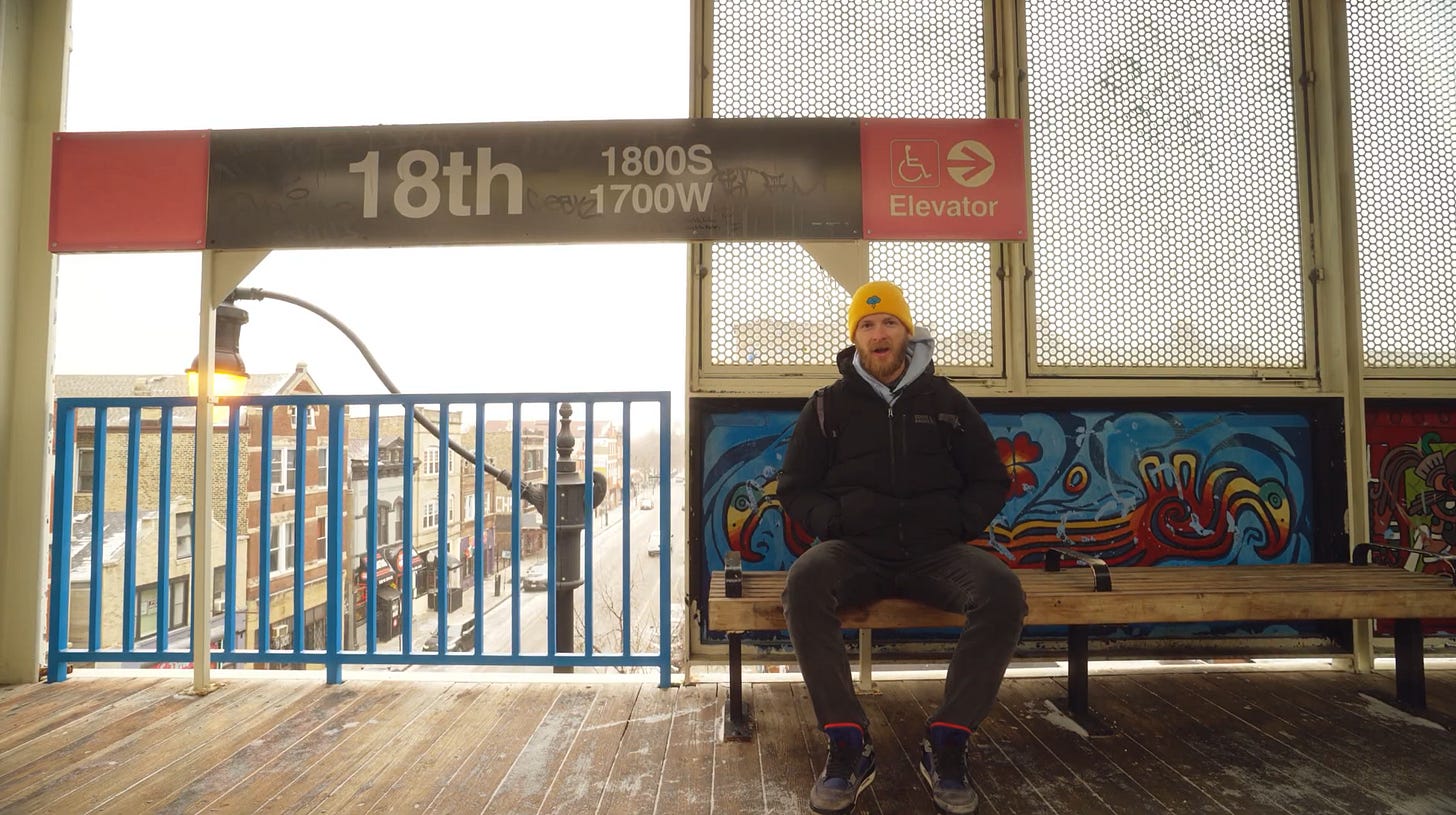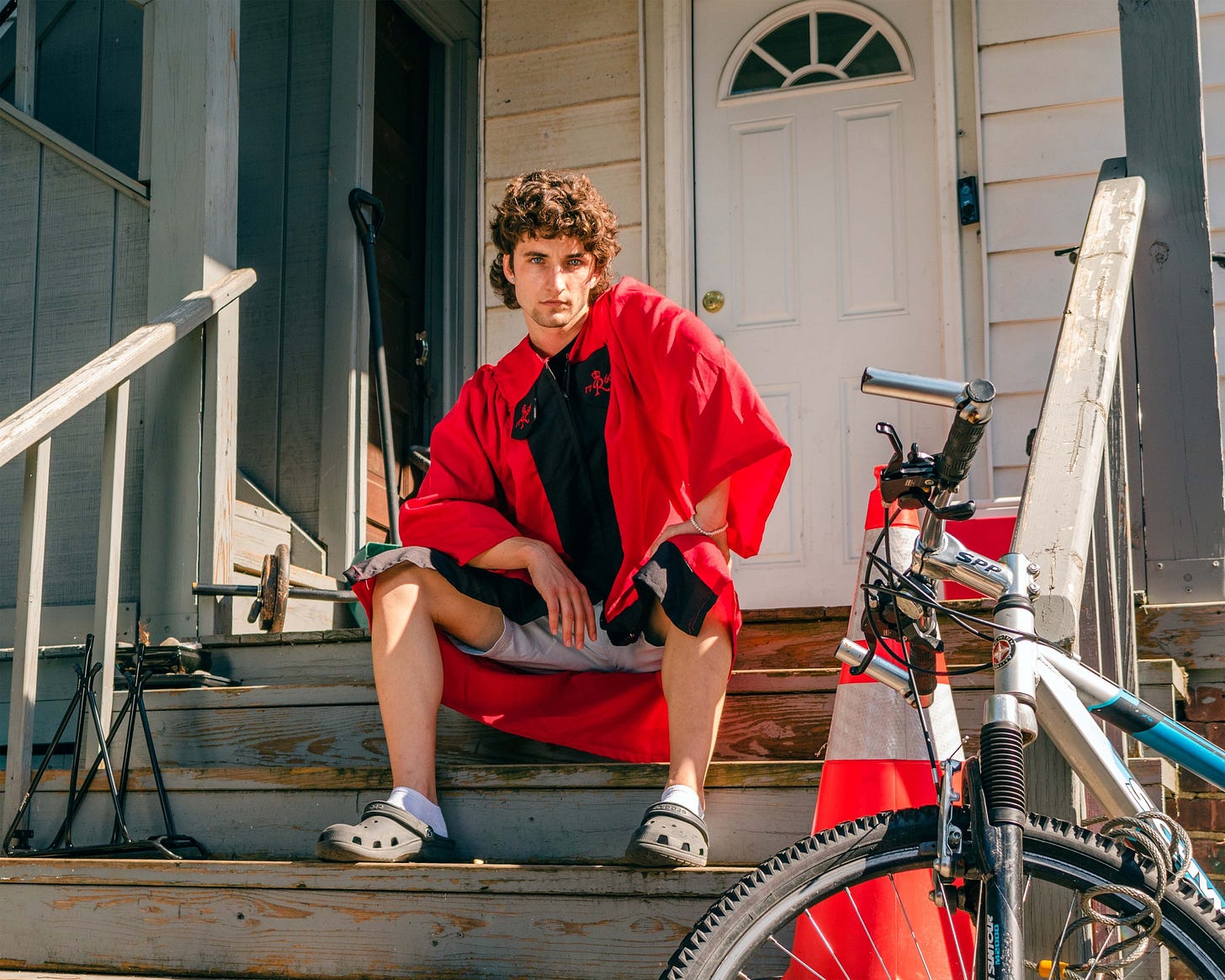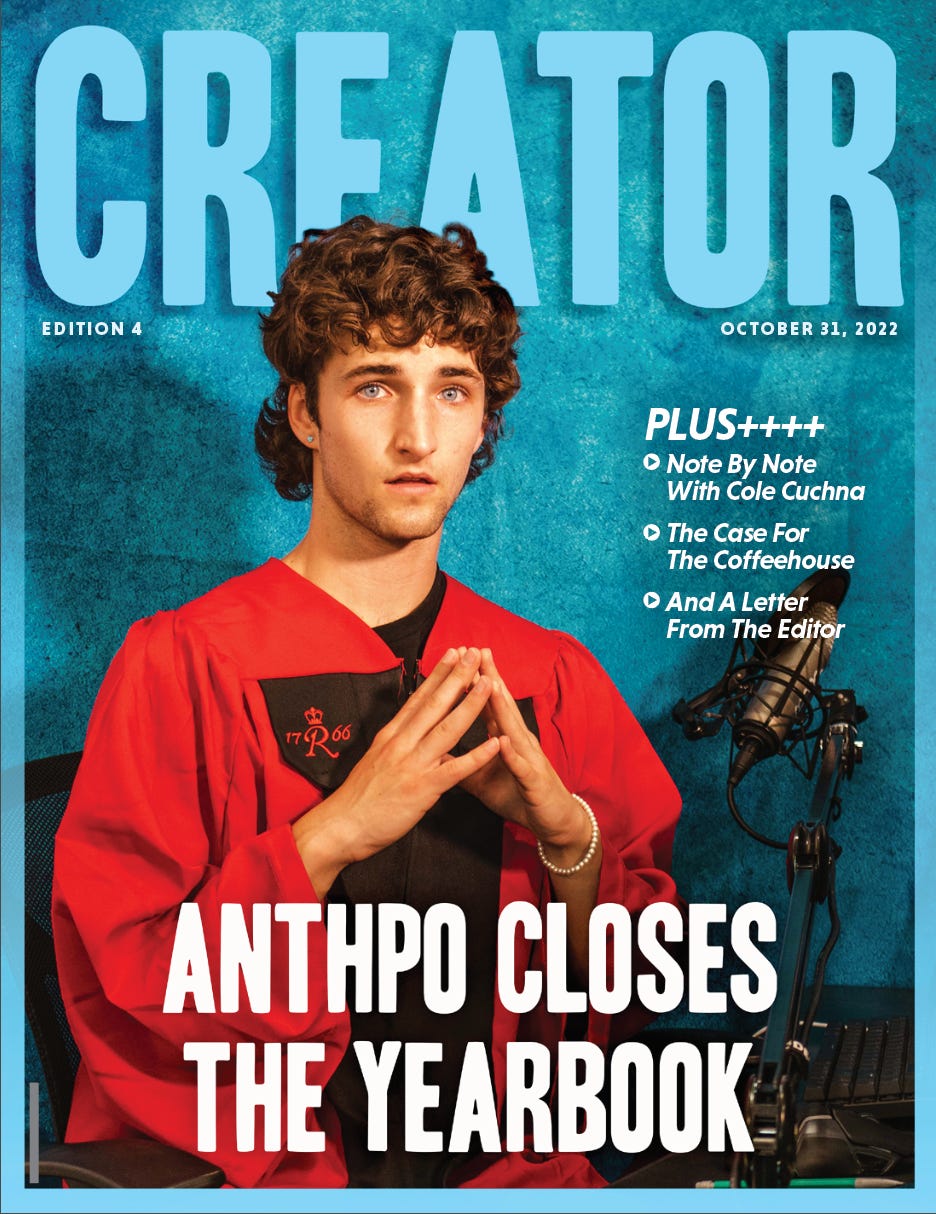The Blog Must Go On 🎭
An update, six months in

blog.thirty-three // Not to be over-dramatic, but I have been quite sick this weekend, harboring a nasty case of the flu.
Lots of time resting in one’s room does not translate to hosting events; The Sticky Note Art Show has been postponed to a later date, for those keeping score at home. It does lend a lot of space for (over)thinking, however, including reflection on this blog—which just turned six months old.
During that time, we’ve shared a new blog every week, without missing any Sundays. I’ve personally found myself writing this from a hotel bed while driving across the country—and hunched in front of an airplane tray table while flying over the Atlantic. The blog hasn’t only helped me reconnect with friends and family; it’s also been an outlet to share fresh ideas and timely observations, now welcoming in double the readers we started with last August.
Some of you have even told me you were inspired to start writing more after reading these dispatches. Seeing you start Substacks or blogs elsewhere is the coolest thing in the world.
I’d like to tell you there’s a secret sauce to becoming a more consistent writer. The truth is…there isn’t. You have to learn to kill your darlings, trading perfectionism with showing up, every single day. Even when you’re sick with the flu.
Nevertheless, setting this precedent on consistency comes with a tradeoff. Now the space required for deeper, more impactful work—the writing that takes weeks and months of rumination—has competition.
I used to think this tradeoff was black-and-white, an either/or. Either you pumped out “content,” or you kept your “artistic integrity” as your stories fell on deaf ears.
Like any good Improv 101 teacher would tell you, though, that tradeoff is really a yes/and proposition. These two sides of the same coin are most impactful when operating in harmony with one another. While it’s amazing to look back on the last six months of this blog, I can’t wait to share some of the deeper work with you all soon enough, too.
In the meantime, given all of the fresh faces here, I thought I’d use this evening to bring back a previous fan favorite from our print zine, Creator Mag. A lot has changed since first running this story; the subject has quit YouTube, returned to the platform, and even started a viral trend or two.
Yet I believe a lot of the themes within the piece still hold up, all these years later. Hope this piece can help cure the Sunday Scaries.
— NGL
P.S. Last blog, we talked with designer Temi Coker about letting go of the things we can’t control—and his trademark phrase, “‘Till death do us art.” You can read it here.

If we get to a point in the near future where everyone boasts, say, ten thousand followers across their social media channels (an arbitrary number, though for the sake of this scenario, imagine standing on a stage in front of ten thousand people), the concept of fame might simply evolve into a subjective matter, unquantifiable even. “We’re gonna end up in a world where eighty percent of people are famous, in one way or another,” uber-famous twenty-one-year old creator Emma Chamberlain declared in a May episode of her podcast, Anything Goes. “And fame becomes a universal experience.”
Yet in the present, fame remains a peculiar thing. Fame is sprung up through For You pages, hoisted to a pedestal where winners’ medals are swapped for golden plaques and blue check marks—the ones that don’t cost eight dollars per month, of course. Fame can be sustained through yo-yo tricks and science experiments, through singular talents or absurd challenges or personable vlogs or nothing at all, really. Fame, propped up by the internet’s boundless landscape of never-ending niches, has seemingly never been more attainable, yet it’s picky in who it favors, and unforgiving in those it neglects.
Some become more famous upon their death, but the death of fame itself is a collapse into obscurity, a title bout with irrelevance. To gain an audience online—where fame is now almost certainly centered—is a hard-fought battle, a constant push-and-pull with attention and analytics, trends and tangible ideas.
To give that up, to shelve that presence one fought tooth and nail for from the face of the internet, isn’t just unheard of. It’s a bad business decision at best, a borderline cultural crime at worst, especially when a culture becomes less about how you achieved your fame and more about whether or not you still have it. It is, in all essence, the act of sacrificing one’s voice and its subsequent standing in a world where we can watch, read, and hear what everyone is thinking, at any given moment. A little bit of everything, all of the time.

A certain variant of fame can be found in New Brunswick, New Jersey, incubated in the test tube of YouTube and cultivated right here at Rutgers University, where I’ve just arrived via train. Twenty-four hours earlier, I had caught up with a friend at a cafe in SoHo and explained why I was in town: to profile a college senior with one-point-five million subscribers who, exactly four-hundred-and-seventy-seven days before his graduation, uploaded a rather noteworthy video to his channel, in which he proclaimed that he would quit the platform once his commencement commenced. Whether the channel would remain, too, was something only he knew.
My friend, a creator themselves, balked at this notion. Even if the process of uploading had become exhausting, or the sponsorship money had dried up, common logic would dictate that keeping the back catalog of videos intact (and, thus, a declining-but-steady stream of AdSense revenue) was, at the very least, worth it, right? Isn’t deleting a YouTube channel like that essentially the equivalent of lighting hundreds of thousands—if not millions—of dollars on fire? they pondered out loud.
Though the question was rhetorical, I didn’t necessarily have a good rebuttal. I had my suspicions, which is why I’m here, after all. To learn more about Anthony Potero, better known as Anthpo, who talks about things like wanting to bring “Old YouTube” back and the process of closing chapters in order to write new ones and the “mitosis” of content groups and, most importantly, the (literal) friends he’s made along the way.
And even if someone like Anthony grew up online, in front of millions of people, none of these threads we pull over the course of several hours come off as vain, but, rather, observant, of modern fame and his place in it.
“My videos are a byproduct of me,” he says. “And I’m a byproduct of the internet, and culture.”
You can read the full story here—or listen along below.
Thanks for reading! Shoot me a reply, comment, or DM if anything resonated with you in particular—I respond to them all.



